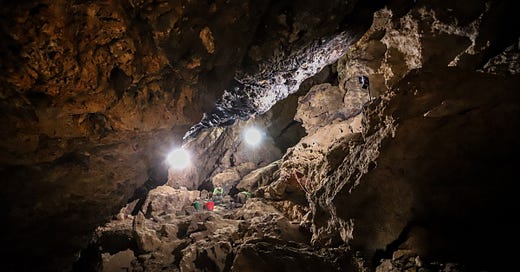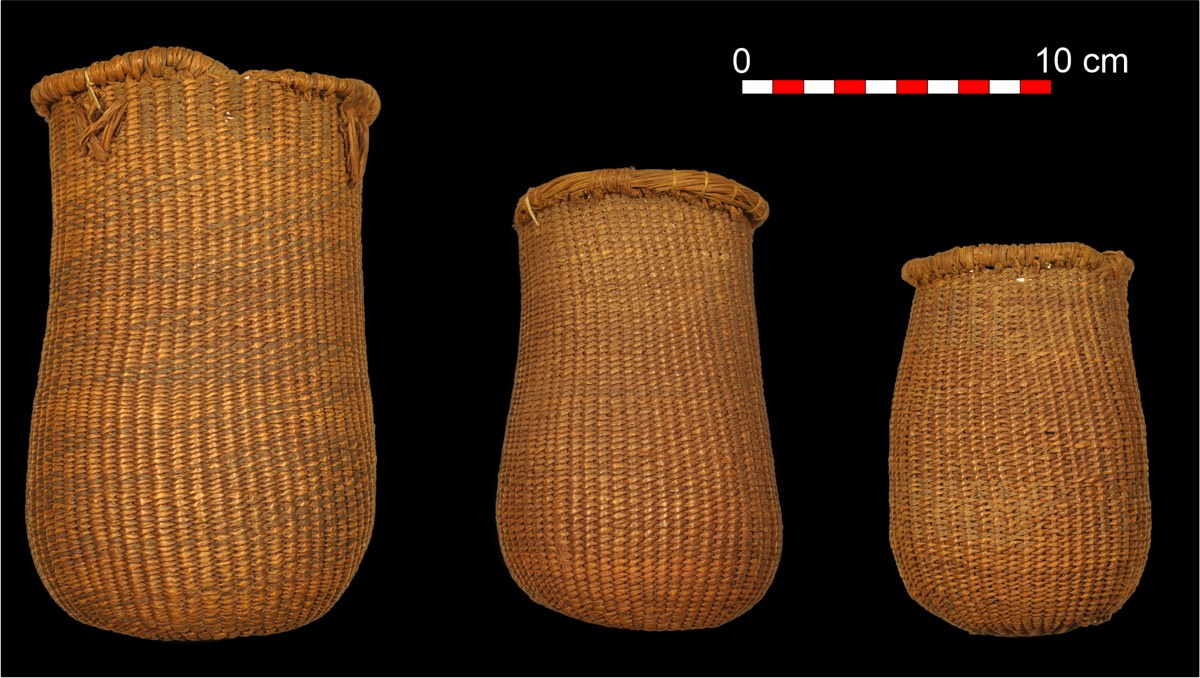Archaeologists have unearthed ancient sandals buried in a bat cave dating back 6000 years
Additionally, basketry from the same site predates the sandals, reaching back 9,500 years to the Mesolithic period."
In the depths of Cueva de los Murciélagos ("Cave of the Bats") in southern Spain, archaeologists have unearthed a treasure trove of ancient artifacts1. Among these discoveries are 22 pairs of sandals woven from esparto, a type of grass, dating back an astounding 6,200 years. Accompanying these ancient sandals are even older artifacts, notably basketry, some dating back 9,500 years to the Mesolithic period. These findings have opened a fascinating window into the lives of prehistoric hunter-gatherers and early farmers in the region.
The esparto sandals discovered in Cueva de los Murciélagos have captivated archaeologists due to their age and craftsmanship. Radiocarbon dating, utilizing advanced techniques like accelerator mass spectrometry (AMS), has placed these sandals at an age significantly preceding similar footwear found in Europe. Crafted from crushed esparto, these sandals offer clues about the ancient people's focus on both comfort and flexibility. Moreover, the sandals exhibit distinct styles—some simple, others with fibers protruding from the base—hinting at the diversity of footwear fashion among ancient communities.

Accompanying the sandals is a trove of ancient basketry, some of which predates the sandals by thousands of years. This discovery provides the first direct evidence of basketry weaving among the Mesolithic inhabitants of the region. The quality and complexity of these baskets challenge preconceived notions about the technological prowess of ancient communities. The baskets' intricate designs and the advanced weaving techniques employed offer a glimpse into the intellectual and creative capacities of prehistoric humans.
The remarkable preservation of these organic artifacts can be attributed to the unique geology of Cueva de los Murciélagos. The cave's low humidity, combined with a dry wind current channeled through its narrow upper entrance, created an environment where plant-based artifacts could endure for millennia. This exceptional preservation has allowed archaeologists to delve into a world frozen in time, offering unparalleled insights into ancient craftsmanship and cultural practices.
While the preservation of these artifacts is extraordinary, the absence of detailed contextual information poses challenges for researchers. The original positions of the items within the cave were not recorded, hindering traditional archaeological methodologies. Despite this challenge, the artifacts, including the sandals and basketry, represent a unique sample absent in other early farmer communities. This scarcity makes the discoveries in Cueva de los Murciélagos all the more precious and worthy of thorough study.
The discoveries in Cueva de los Murciélagos offer a tantalizing glimpse into the lives of our ancient ancestors. Through their footwear and woven creations, we can discern not only their practical needs but also their artistic expressions. The intricate designs and advanced techniques displayed in these artifacts challenge our understanding of early societies, inviting us to reevaluate the complexity of ancient cultures. As scientists continue to unravel the mysteries of Cueva de los Murciélagos, they are unearthing not just remnants of the past, but echoes of human creativity and ingenuity that have resonated through millennia.
Martínez-Sevilla, F., Herrero-Otal, M., Martín-Seijo, M., Santana, J., Lozano Rodríguez, J. A., Maicas Ramos, R., Cubas, M., Homs, A., Martínez Sánchez, R. M., Bertin, I., Barroso Bermejo, R., Bueno Ramírez, P., de Balbín Behrmann, R., Palomo Pérez, A., Álvarez-Valero, A. M., Peña-Chocarro, L., Murillo-Barroso, M., Fernández-Domínguez, E., Altamirano García, M., … Piqué Huerta, R. (2023). The earliest basketry in southern Europe: Hunter-gatherer and farmer plant-based technology in Cueva de los Murciélagos (Albuñol). Science Advances, 9(39). https://doi.org/10.1126/sciadv.adi3055




